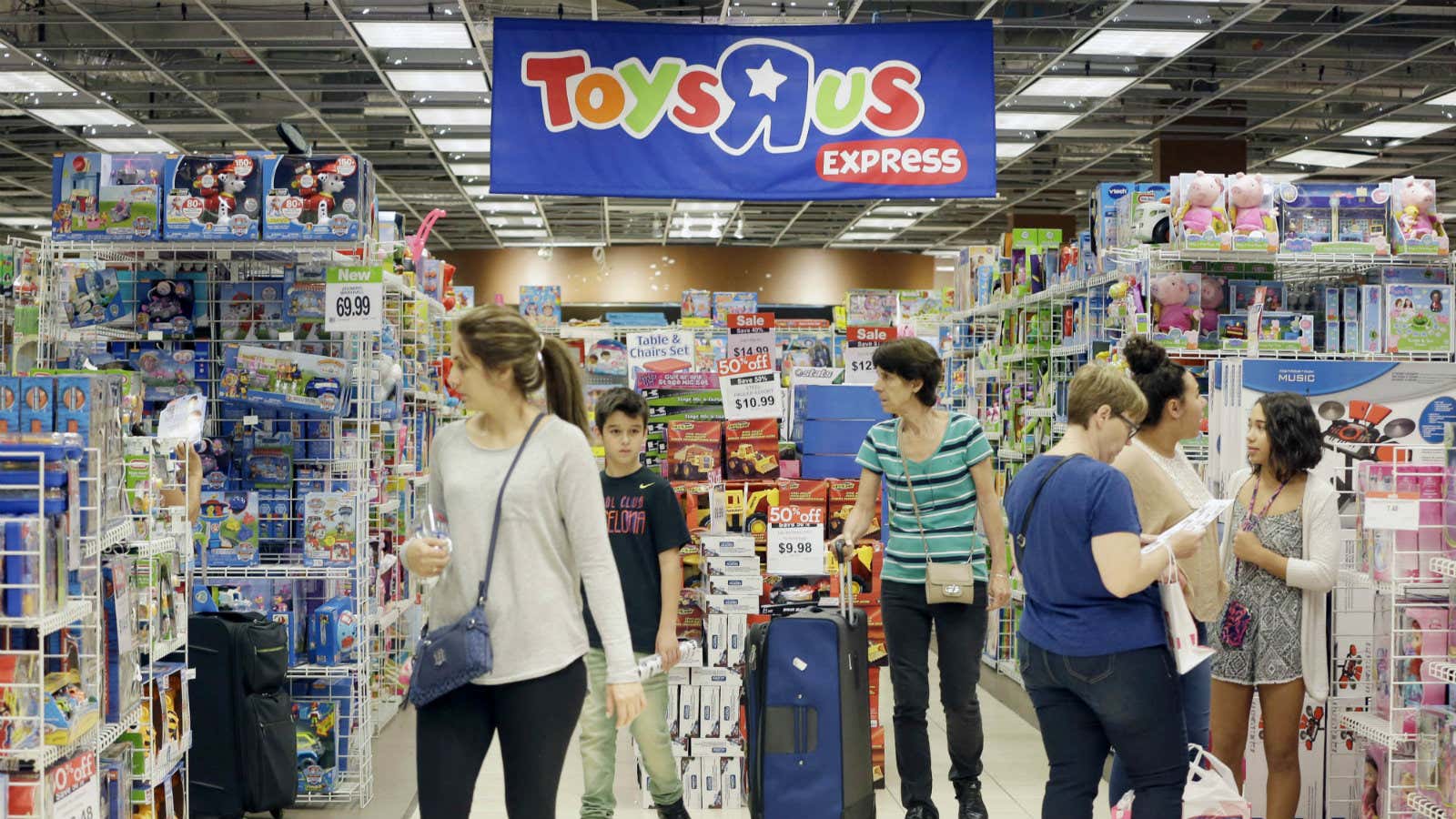America’s largest chain of toy stores, Toys”R”Us is in trouble back home, but has big plans for India.
On Oct. 07, Toys”R”Us opened its first store in the country in Bengaluru through a franchise tie-up with Tablez India, part of the Abu Dhabi-based Lulu Group owned by, non-resident Indian billionaire Yusuff Ali MA. The partnership plans to open 65 more stores in India over the next decade. With an investment of $50 million (Rs326 crore), it will feature two brands of the American retailer—Toys”R”Us and Babies”R”Us—feeding India’s growing demand for branded toys and kids’ products.
However, on Sept. 18, the iconic retailer of toys and baby products across 1,600 stores in 38 countries filed for bankruptcy for its US and Canadian subsidiaries, citing online competition and hefty debt as reasons. Its business outside these two countries, however, is not part of the bankruptcy filing. On Sept. 25, the New Jersey-based firm announced that it “has closed on $3.1 billion worth of financing facilities to support the company’s operations during its financial restructuring process.”
Its business outside of the US and Canada remain strong, said Adeeb Ahmed, managing director, Tablez India. Toys”R”Us did not respond to an emailed query from Quartz.
Toying with India
With its growing and increasingly affluent middle-class, India is a promising market for retailers looking to sell toys and games to kids, especially as discerning parents up their spends on branded products.
“With an increase in the purchasing power and an increasing number of households with fewer children, people have increased their spending on toys and consequently sales of branded toys are on the rise,” research firm Euromonitor said in a June report.
Over the last few years, large foreign kids’ products chains, including Hamleys, and Carter’s, have expanded their presence in the Rs5,612 crore Indian toys market.
In a country where toy sales mostly happen through small mom-and-pop stores that sell cheap Chinese imports, Toys”R”Us plans to “bring a lot of organisation to unorganised retail as well as wholesale distribution,” Ahmed said.
Although the partnership will open both Toys”R”Us and Babies”R”Us stores, the focus will remain on the former as Tablez anticipates more demand for kids’ toys, especially in the zero to six age group. The stores in India will be smaller than those in the US and prices will range from Rs150 to Rs10,000.
The challenge, however, is that demand in India is shifting rapidly as kids get influenced by digital toys and tablets. This has resulted in shrinking of the target age-group for manufacturers and retailers. As Euromonitor noted in the June report, “Children aged five and above are now moving towards video games and mobile games, rather than playing with traditional toys and games.”
There’s also the fact that more shoppers are now going online, Euromonitor noted. While stores still remain the preferred choice—they accounted for 50% of all sales in 2016—”customers are increasingly buying branded toys and games online.” This mirrors the situation in the US and Canada. In India, Ahmed said, the stores will remain the mainstay for now, but tie-ups with large e-tailers could be in the offing over the next 12-18 months.
“It isn’t just about selling toys,” he said, “We want to create a space where kids and parents can come and learn new, experiential, and interactive things.”
